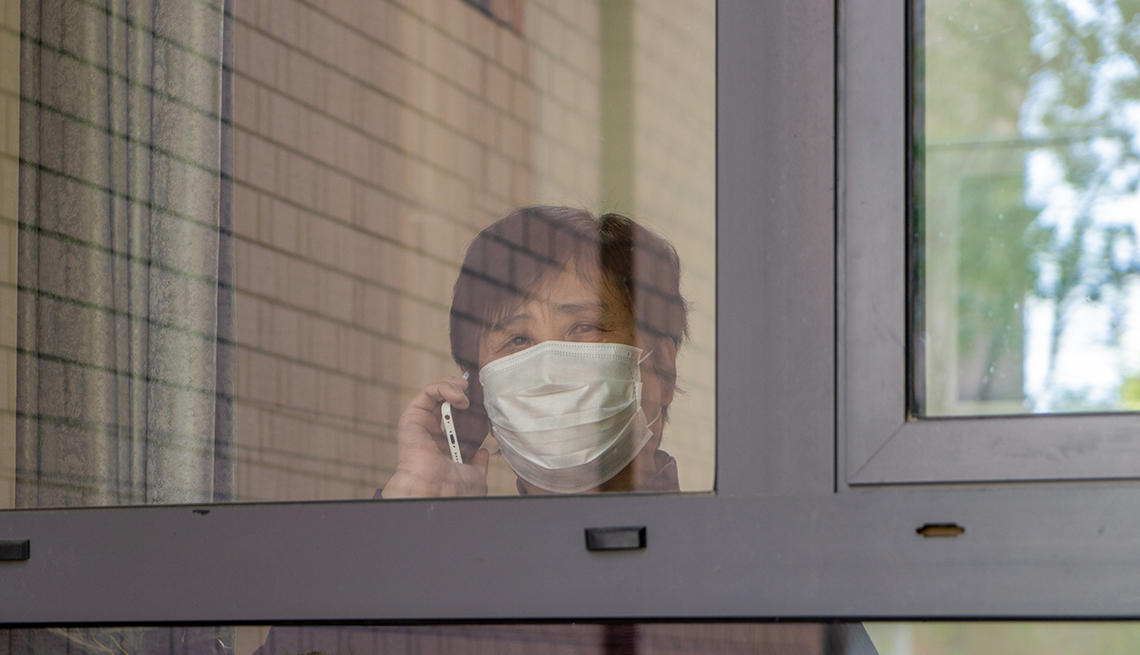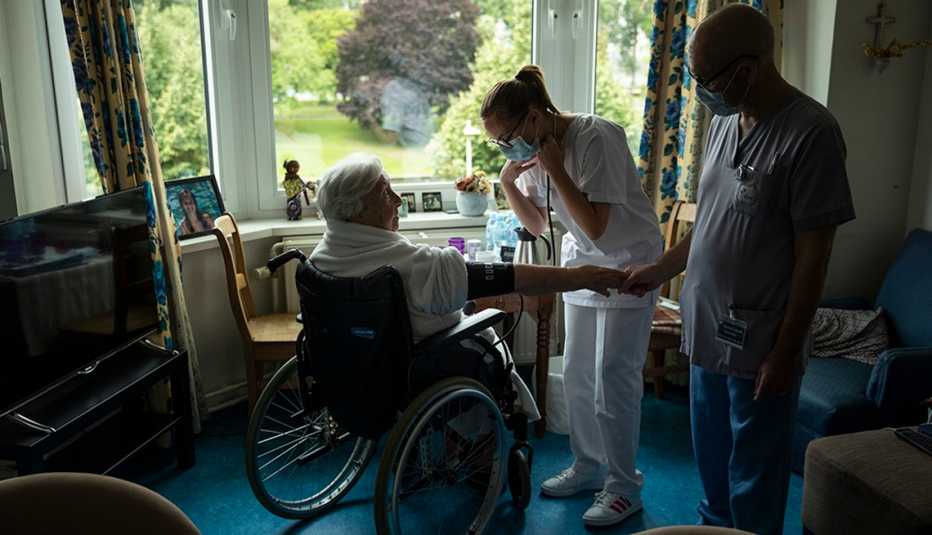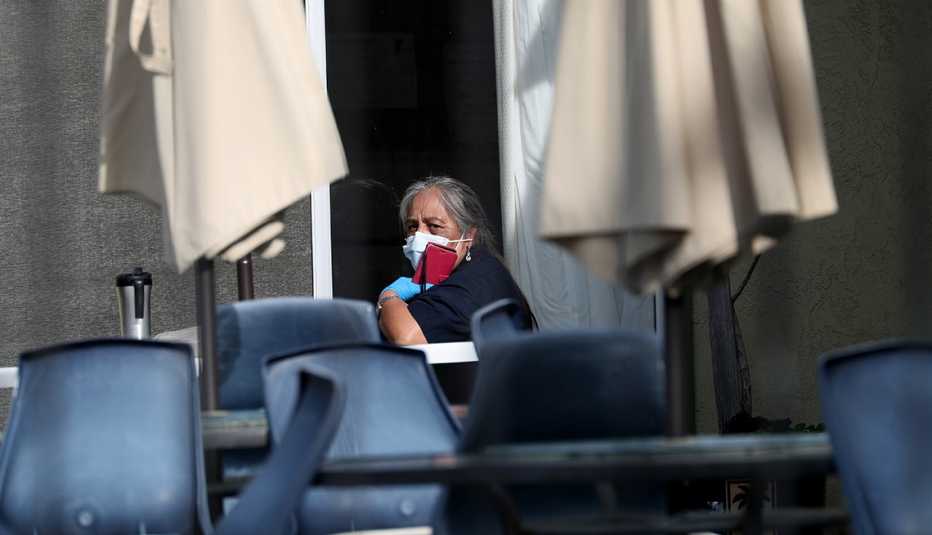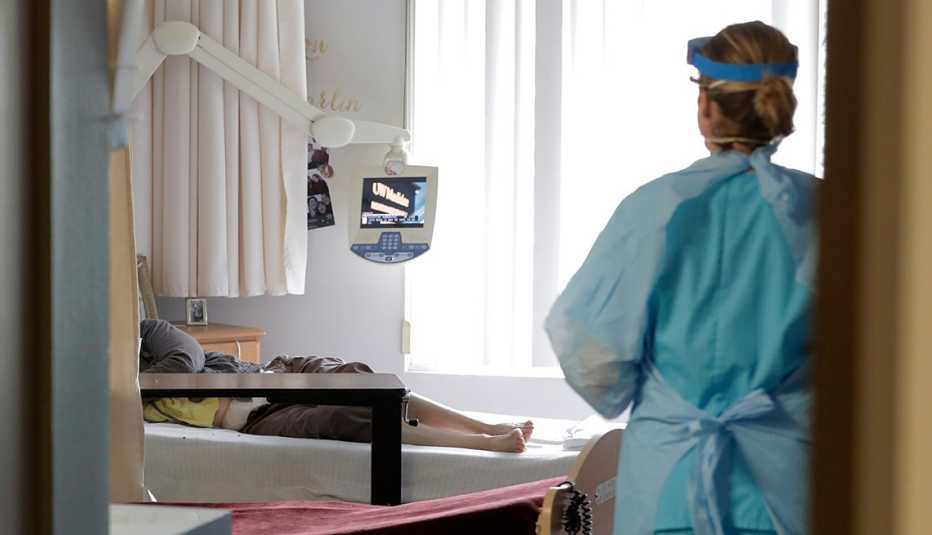Staying Fit
When Florida Gov. Ron DeSantis announced this week that nursing homes in his state could start accepting visitors for the first time since mid-March, 57-year-old Mary Daniel of Jacksonville says she could “finally breathe a sigh of relief."
Daniel made national headlines in July when she took a job cleaning and washing dishes at the memory-care facility where her husband, Steve, who has Alzheimer's disease, lives. It was the only way for her to get in the door to spend time with him, as most long-term care visitors had been barred from facilities statewide because of COVID-19.


AARP Membership— $12 for your first year when you sign up for Automatic Renewal
Get instant access to members-only products and hundreds of discounts, a free second membership, and a subscription to AARP the Magazine.
Now, a few days later, Daniel is feeling desperate again. Staff at her husband's facility told her it would likely be a month before they'd be ready to begin accepting visitors. She's heard a similar refrain from contacts throughout Florida — that few homes are prepared to welcome guests, even though visitation is technically allowed.
"It's almost cruel, when you have people saying, ‘Can I go in tomorrow? Can I go in the next day?’ — because the order's enforced. The governor signed this,” Daniel says.
Florida's announced resumption of nursing home visits has attracted national attention. Most other states have issued guidelines for resuming visits, but Florida is a national bellwether for elder care, says Brian Lee, executive director of Families for Better Care, a nursing home and assisted living advocacy group.
The state's plan leaves out some strategies implemented elsewhere, like a regional reopening plan for facilities in certain counties — some of which are seeing the coronavirus continue to spread rapidly. Another notable absence: a requirement for testing visitors.
Some advocates for nursing home residents worry that Florida's guidelines are so broadly written they'll lead to uncertainty, delays and even death. “I'm deeply concerned that this order is going to be used as a blueprint for other states to mirror what Florida has done,” says Lee, a former Florida long-term care ombudsman, who was tasked with helping families navigate concerns about facilities.




































































